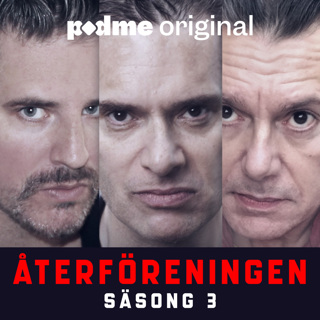
Reform of the House of Lords
Britain's Labour government was determined to get rid of the unelected aristocrats sitting in the House of Lords - Parliament's second chamber. But the hereditary peers didn't go without a fight. Susan Hulme has been speaking to Marquis of Salisbury the man at the centre of the backroom deal to keep some seats for the nobility.Photo: Lords at the State Opening of Parliament in Westminster. in 2008. Credit: Dominic Lipinski/PA Wire
8 Okt 20189min

Howl: The Poem That Revolutionised US Writing
Allen Ginsberg first read his poem Howl, at an art gallery in San Francisco in October 1955. It marked a turning point in American literature and is credited with starting the "Beat Generation" of American writers. Michael McClure, a fellow poet, took part in the reading that night. The programme was first broadcast in 2012.Photo: Allen Ginsberg, front row centre, with other poets in 1965. Express/Getty Images.
5 Okt 20188min

The Soviet Union's Fashion Revolutionary
Slava Zaitsev was the first designer to create high fashion collections in the Soviet Union. He tells Dina Newman about the challenges he faced working under communism. Photo: a sketch of a dress designed by Slava Zaitsev; credit: courtesy of Slava Zaitsev.
4 Okt 20188min

The Invention of Artificial Skin
How a chemist and a surgeon found a way of helping burns to heal. Chemist Ioannis Yannas was working alongside surgeon John Burke when they first made the breakthrough using a membrane made of collagen to cover burns which were too large for skin grafts.Photo: Professor Ioannis Yannas with some of his collagen membrane. Credit: MIT.
3 Okt 20189min

The Street Battle That Rocked Brazil
On the 2nd and 3rd of October 1968, students from two neighbouring universities in the centre of São Paulo clashed in a battle which left one dead and many injured. Thomas Pappon talked to two former students who were at the so called 'Battle of Maria Antônia'.Photo: the 'Battle of Maria Antonia', São Paulo, 1968. Credit: Agência Estado/AFP
2 Okt 20189min

Racial Equality in Britain - Learie Constantine
The former West Indies cricketer, Learie Constantine, took the Imperial Hotel in London to court in 1943. It had refused to let him and his family stay because they were black. He won his case. Susan Hulme brings you his story from the BBC Archives.Photo: Sir Learie Constantine and his wife in the 1960s. Credit: Central Press/Hulton Archive/Getty Images.
1 Okt 20188min

The Bridge Which United Sweden and Denmark
In 1993 work began to build Europe's longest road and rail bridge. The Oresund Bridge links Sweden to Denmark connecting them by land for the first time in thousands of years. In an unlikely twist, it also inspired a hit TV drama which has been broadcast in more than 150 countries. Claire Bowes spoke to Ajs Dam, head of information at the consortium which built the bridge.Photo: Oresundsbron by night from Lernacken (courtesy of Pierre Mens/Øresundsbron)
28 Sep 201811min

Fighting in the Iran-Iraq War
The war lasted for eight years. The death toll is estimated at over a million people. It began when Saddam Hussein sent planes and troops into Iran in September 1980. Ahmed Almushatat was a young Iraqi medic who was sent to the front line towards the end of the war. He spoke to Louise Hidalgo.Photo: An Iraqi tank in action. Credit:AFP/Getty Images
27 Sep 20189min






















